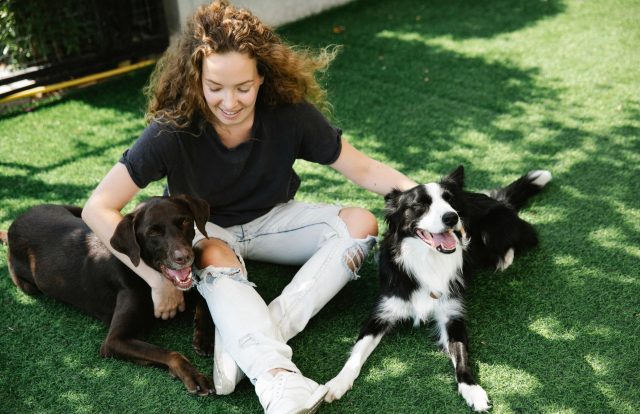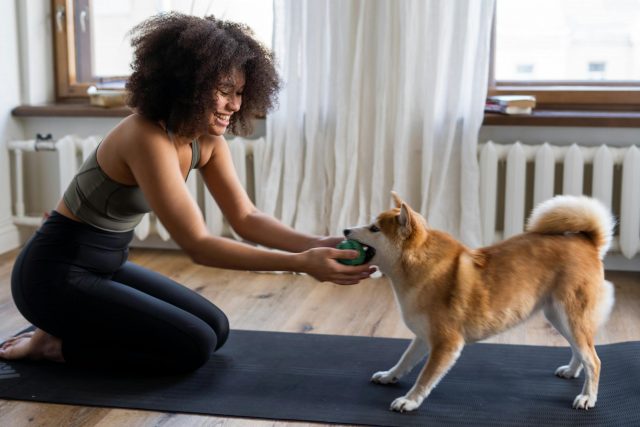
One of our beloved canine companions’ most fascinating and heartwarming aspects of their behavior is their ability to remember the people they have bonded with. Understanding “How Long Can Dogs Remember A Person?” is an intriguing question for dog owners and enthusiasts and a crucial aspect of fostering strong, lasting relationships with our pets. Dogs are known for their loyalty and affectionate nature, and their memory plays a significant role in these traits. Whether it’s a family member, a friend, or a caretaker, dogs form deep emotional connections with humans, and their memory of these connections is a key component of their behavior and well-being.
This article will explore the intricacies of canine memory, including how it works, the factors that affect it, and how long dogs can remember a person.

Understanding Canine Memory
To understand “How Long Can Dogs Remember A Person?”, it’s essential to delve into the basics of canine memory. Dogs, like humans, have both short-term and long-term memory. Short-term memory in dogs is relatively brief, typically lasting around 10 to 20 seconds. This type of memory is used for immediate recall and is crucial for learning new commands and behaviors.
On the other hand, long-term memory is where dogs store information about significant events, experiences, and relationships. This type of memory can last for months or even years. Scientific studies have shown that the hippocampus, a part of the brain associated with memory, is highly active in dogs. This brain region helps dogs form and retain memories, especially those linked to strong emotional experiences.
Discover Which Dogs Have The Best Memories
Factors Affecting Dog Memory
Several factors influence how long dogs can remember a person. These include breed, age, training, and past experiences.
- Breed: Different dog breeds have varying cognitive abilities, which can affect their memory. Breeds known for their intelligence, such as Border Collies and Poodles, often have better memory retention than others.
- Age: Age plays a significant role in a dog’s memory. Puppies and young dogs generally have better memory retention compared to older dogs. As dogs age, their cognitive functions may decline, affecting their memory of past experiences.
- Training: Training can significantly enhance a dog’s memory. Positive reinforcement and consistent training routines help dogs form strong associations between commands and actions, which can improve their ability to remember.
- Experiences: The nature of a dog’s past experiences also influences their memory. Positive experiences like bonding activities and social interactions are more likely to be remembered than negative or traumatic events.
How Long Can Dogs Remember A Person?
The question “How Long Can Dogs Remember A Person?” has been the subject of various studies and expert opinions. Research indicates that dogs can remember people they have bonded with for several years. This remarkable ability is attributed to their long-term memory and strong associative memory skills.
One study by researchers at the University of Padua in Italy found that dogs could recognize their owners’ voices even after a two-year separation. This study highlights the depth of emotional bonds and the powerful role of memory in these relationships.
Dogs also rely heavily on their sense of smell to remember people. Their olfactory memory is incredibly strong, allowing them to recognize familiar scents even after long periods. This ability explains why dogs often exhibit excitement and recognition when reunited with their owners after extended absences.
Find The Best Supplements For Your Dog’s Brain Health
Case Studies and Real-Life Examples
Real-life stories and case studies provide compelling evidence of dogs’ impressive memory. For instance, numerous accounts of military dogs recognizing their handlers after being separated for years due to deployments. These dogs often display overwhelming joy and excitement during reunions, demonstrating their strong emotional bonds and long-term memory.
Another touching example is the story of Hachiko, an Akita dog from Japan who continued to wait at a train station for his deceased owner for nearly ten years. Hachiko’s unwavering loyalty and memory of his owner touched the hearts of many and became a symbol of enduring love and memory.
Tips to Improve Your Dog’s Memory
Pet owners can take several steps to help improve their dog’s memory. Here are some practical tips:
- Consistent Training: Regular and consistent training sessions reinforce memory retention. Using positive reinforcement techniques helps dogs associate commands and behaviors with positive outcomes.
- Mental Stimulation: Providing mental stimulation through puzzles, games, and interactive toys keeps a dog’s brain active and enhances their cognitive abilities.
- Social Interaction: Regular social interactions with other dogs and people help dogs build and retain social memories.
- Healthy Diet: A balanced diet rich in essential nutrients supports overall brain health and function.
- Routine: Establishing a routine helps dogs feel secure and aids in memory retention by creating predictable patterns.
Explore The Amazing Facts About Dogs’ Memory Capabilities
Conclusion: How Long Can Dogs Remember A Person?
Understanding “How Long Can Dogs Remember A Person?” is essential for building strong, lasting bonds with our furry friends. Dogs possess remarkable long-term memory capabilities, allowing them to remember their owners and loved ones for years. By recognizing the factors influencing dog memory and implementing strategies to enhance it, pet owners can ensure their dogs remain happy, healthy, and mentally sharp. The bond between humans and dogs is truly special, and appreciating the depth of a dog’s memory only strengthens this connection.
The post How Long Can Dogs Remember A Person? appeared first on iHeartDogs.com.
via Whisker Therapy
